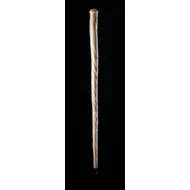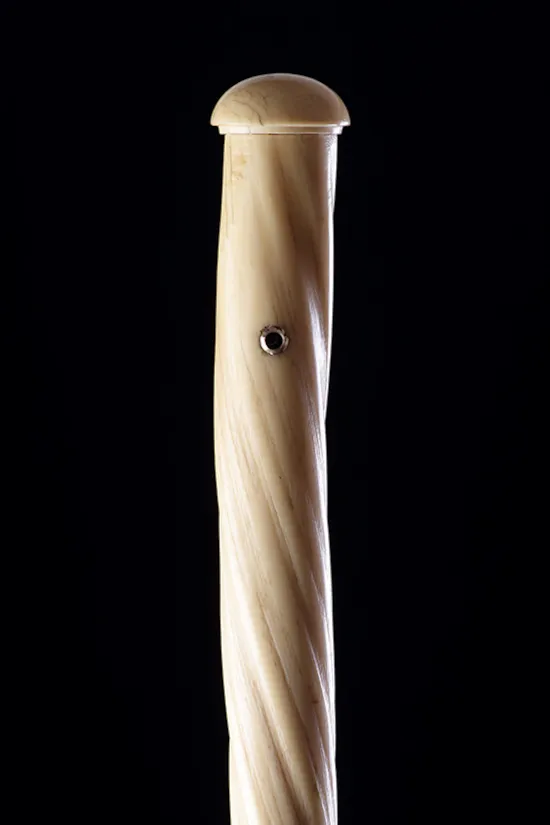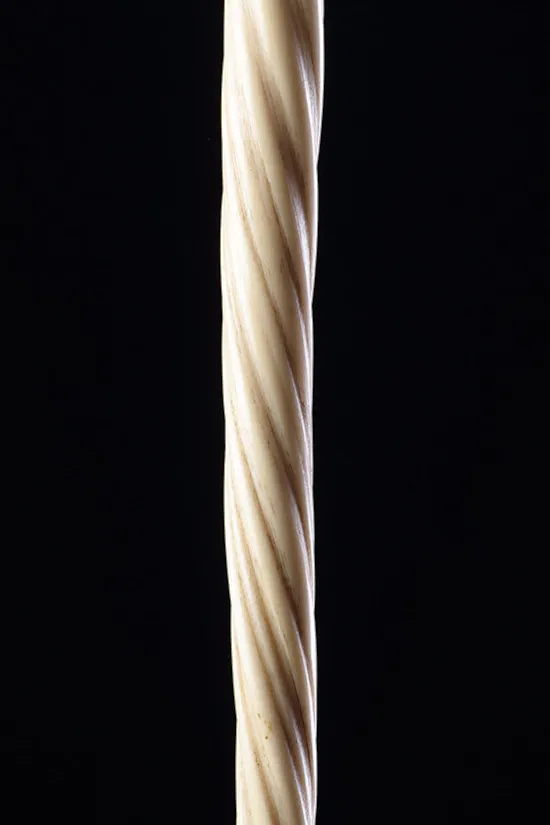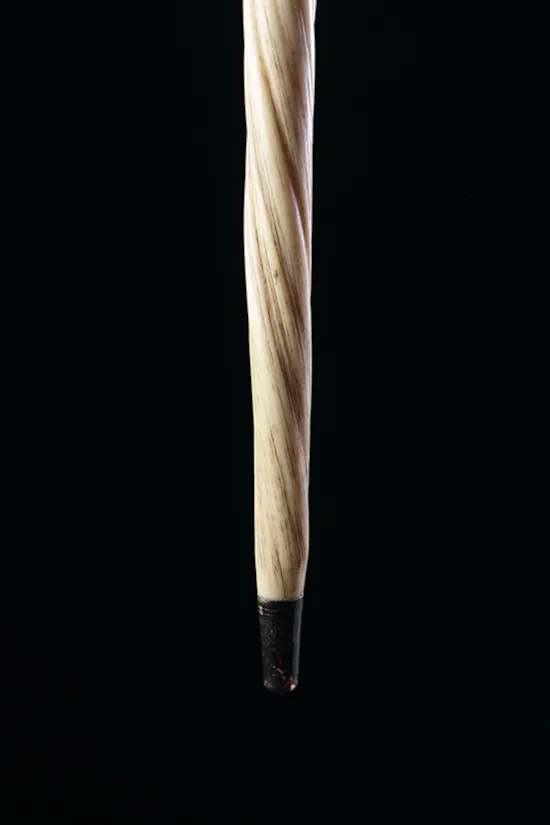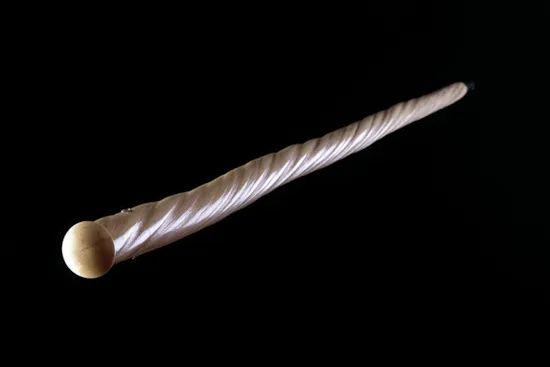Sailors Scrimshaw Narwhal Tusk Walking Cane
A Superb and Substantial Sailors Scrimshaw Narwhal Tusk Walking Cane ‘Monodon Monceros’
The eyelets for a wrist thong of gold
Old smooth silky creamy yellow patina, the tip with original brass ferrule
Late 18th Century - Early 19th Century
Size: Size: 90cm long - 35½ ins long
(CITES Article 10 paperwork available)
The eyelets for a wrist thong of gold
Old smooth silky creamy yellow patina, the tip with original brass ferrule
Late 18th Century - Early 19th Century
Size: Size: 90cm long - 35½ ins long
(CITES Article 10 paperwork available)
Known as the ‘Unicorn of the Sea’ narwhal, a relative of the white beluga whale, were encountered by 16th century mariners hunting the colossal sperm whales in the Arctic Seas. The tusks would be brought back from around Greenland and sold to merchants and collectors in Europe as magical and valuable objects of curiosity. They were thought to possess the power to be able to detect poison, and so were often placed on banqueting tables where they would ‘sweat tears’ if the food contained deadly substances. Queen Elizabeth I was said to have obtained a fine specimen by paying for its weight in gold. Belief in the existence of the unicorn persisted into the 18th century when over 100 ‘unicorn’ apothecary shops could be found in Germany.
Sailors Scrimshaw Narwhal Tusk Walking Cane
